We know you are taking action to care for your kidneys. To help, our Protect Your Kidneys Program gives you the following benefits:
- A Care Team to support your health needs
- Health education for kidney health
Members with specific kidney health needs are eligible for the Protect Your Kidneys Program. Services are free and members can decline to participate at any time.
For more information about our Protect Your Kidneys Program:
Call: 1-866-292-0010 (TTY 711)
Office hours: Monday to Friday, 8 a.m. to 5 p.m. PST
E-mail: populationhealth@prospectmedical.com
On this page:
- Living with CKD Stages 1 and 2
- Living with CKD Stage 3
- Resources to help prevent advanced CKD
- Living with advanced CKD - Stages 4 and 5
- Living with advanced CKD - kidney failure
- Resources to help manage advanced kidney disease
Learn more about living with Chronic Kidney Disease (CKD) Stages 1 and 2
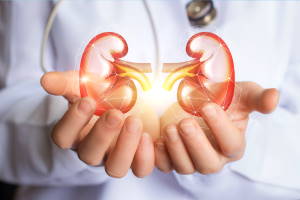
Kidneys do many things, but their main job is to clean your blood of waste and extra fluid. When you have CKD, your kidneys can no longer remove enough waste and fluid from your blood to keep you healthy.
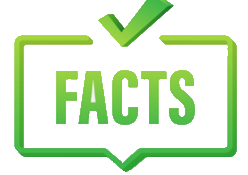
- It usually does not go away.
- There are 5 stages of CKD.
- Each stage of CKD is based on the result of a blood test called the estimated Glomerular Filtration Rate or eGFR.
- Most people don’t find out they have it until the later stages of CKD.
- It is best to seek help early to prevent advance CKD.
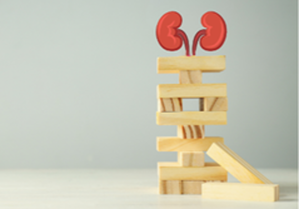
- Being at risk means you are more likely to get CKD. You have a higher risk if you have diabetes or high blood pressure. Other risk factors of CKD are:
- A family history of kidney disease
- Heart disease
- Older age
- Race or ethnicity. If you are Black or African American, Hispanic or Latinx, Asian-American, Pacific Islander, or Native American
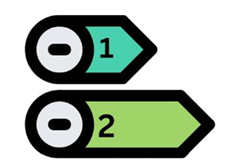
- In CKD 1 and CKD 2, your kidneys have mild damage.
- In stage 1, the eGFR is 90 or higher.
- In stage 2, the eGFR is 89-60.
- If you have CKD 1 or CKD 2 you can still prevent advance kidney disease.
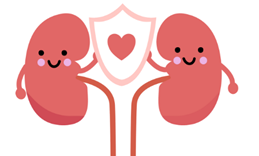
- There are many things you can do to prevent advance CKD. Talk to your doctor about doing the eGFR blood test. If needed, you can also do a urine test to check your kidney health. Here are other important steps you can take:
- See your doctor at least once per year
- Know your blood pressure
- Get tested or treated for diabetes
- Talk to your doctor before taking over-the-counter pain medicine
- Choose healthy delicious food options
- Exercise safely by doing activities you like
- Avoid using tobacco and stay away from others who smoke
- Limit drinking alcohol
Learn more about living with Chronic Kidney Disease (CKD) Stage 3
- Kidneys do many things, but their main job is to clean your blood of waste and extra fluid. When you have CKD, your kidneys can no longer remove enough waste and fluid from your blood to keep you healthy.
- CKD is divided into 5 stages. Each explains how well your kidneys are working. Your top goals at each stage are to:
- Slow down the damage to your kidneys
- Keep your kidneys working as long as possible

- CKD is caused by conditions that have damaged your kidneys. The damage usually happens slowly overtime. The leading causes of CKD are:
- Diabetes
- High blood pressure
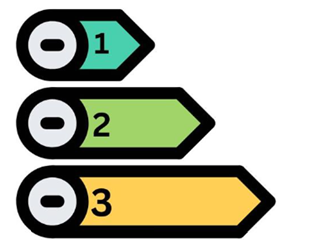
- The estimated Glomerular Filtration Rate (eGFR) blood test, checks how well your kidneys are working
- The stage of CKD is based on the eGFR – the lower the eGFR the more severe is your kidney disease
- If your eGFR is between 30-59 you have CKD Stage 3 – your kidneys have some damage and are not working as well as they should
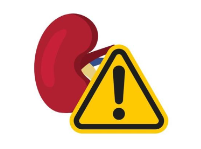
- Symptoms of CKD are usually a late sign of kidney problems. You can have CKD Stage 3 even if you don’t feel sick. If you get symptoms, they can include:
- Anemia
- High blood pressure
- Problems with your bone health
- Swelling in your hands and feet
- Urinating (peeing) too much or urinating less than normal
- Take action! See your doctor or nephrologist (kidney specialist) if you feel symptoms of CKD.

- Take charge of your health and create an action plan to:
- See your doctor and kidney specialist every 6 months – talk about your needs
- Take your medicines as prescribed
- Talk to your doctor before taking over-the-counter pain medicine
- Check your eGFR every 6 months
- Ask to be referred to a dietitian, making good food choices may help prevent more damage to your kidneys
- Know your blood pressure
- Get tested or keep getting care for your diabetes
- Exercise safely by doing activities you like
- Avoid using tobacco and stay away from others who smoke
- Limit drinking alcohol
- Learn how to manage stress or depression if needed
Learn more about preventing advance chronic kidney disease with the following resources:
- Ten tips for quitting smoking
- Benefits of quitting smoking
- For more aid to help you quit call Kick It California at 1-800-300-8086 or visit www.kickitca.org.
- Kick It California in other languages:
- Spanish - Phone: 1-800-300-8191, Web: www.kickitca.org/es
- Chinese – Phone: 1-800-838-8917, Web: www.asiansmokersquitline.org/?lang=zh-hans
- Korean – Phone: 1-800-556-5564, Web: www.asiansmokersquitline.org/?lang=ko
- Vietnamese- Phone: 1-800-778-8440, Web: www.asiansmokersquitline.org/?lang=vi
Learn more about living with Chronic Kidney Disease (CKD) Stage 4 and 5

- Kidneys do many things, but their main job is to clean your blood of waste and extra fluid. When you have chronic kidney disease (CKD), your kidneys can no longer remove enough waste and fluid to keep you healthy.
- CKD is divided into 5 stages. The higher the stage, the more damage to your kidneys. Each stage is based on a blood test called the estimated glomerular filtration rate or eGFR.
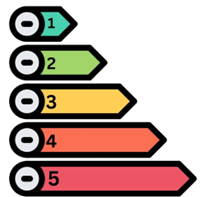
- In CKD Stage 4 your eGFR is between 15-29. This means your kidneys have severe injury and have lost most of their ability to work.
- In CKD Stage 5 your eGFR is less than 15. This means your kidneys are close to failing or no longer working.
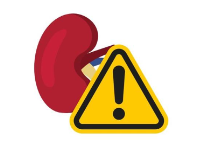
- You can have CKD Stage 4 or Stage 5 even if you don’t feel sick. If you get symptoms, they can include:
- Dry, itchy skin
- Feeling tired or weak
- Feeling sick and throwing up
- Shortness of breath
- Swelling in your hands and feet
- Urinating (peeing) too much or urinating less than normal
- Take action! See your doctor or nephrologist (kidney specialist) if you feel symptoms of CKD.

- Take charge of your health with your doctor and create an action plan to:
- Learn about treatments for kidney failure
- Select a treatment option for kidney failure at stage 5
- Manage your blood pressure, diabetes, and anemia
- See your doctor at least once a year
- See your kidney specialist when asked or at least every 4 months
- Check your eGFR when asked or at least every 4 months
- Watch for symptoms of CKD and talk to your doctor about any new or worsening symptoms
- Then, create an action plan to:
- Take your medicines as prescribed
- Avoid taking over-the-counter medicines or supplements before talking with your doctors
- Make changes to your diet with the help of your doctors
- Avoid using tobacco and stay away from others who smoke
- Limit drinking alcohol
- Exercise safely by doing activities you like
Learn more about living with kidney failure

Kidneys do many things, but their main job is to filter excess water and wastes out of your blood to make urine. When you have chronic kidney disease (CKD), your kidneys can no longer remove enough waste and fluid to keep you healthy.
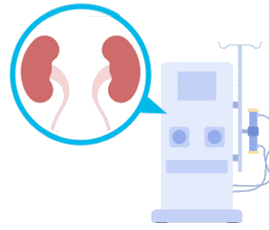
- Chronic kidney disease (CKD) is divided into 5 stages. The higher the stage, the more damage to your kidneys. Kidney failure is the last stage of CKD.
- Kidney failure is also called end-stage kidney disease (ESKD) or end-stage renal disease (ESRD). In this stage, your kidneys no longer work. Waste and fluid buildup in your blood and can make you feel sick and send you to the hospital.
- Treatments for kidney failure include:
- Dialysis – the use of special equipment to clean your blood and remove excess fluid
- Conservative care – extra support from your health care team that does not include dialysis
- Kidney transplant – tests are needed to check if you qualify
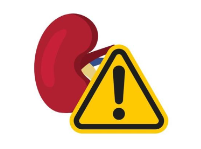
- Symptoms of kidney failure can include:
- Dry, itchy skin
- Odd odor or bad taste in your mouth
- Feeling sick and throwing up
- Swelling in your hands and feet
- Urinating (peeing) too much or urinating less than normal
- See your nephrologist (kidney specialist) or kidney care team if you have new or worsening symptoms of kidney failure.

- Take charge of your health with your doctor and create an action plan to:
- Learn about each treatment option for kidney failure – choose the one that’s best for you
- See your kidney specialist once a month – if on dialysis, you’ll see your care team during treatment visits
- See your doctor as needed or at least once a year
- Take your medicines as prescribed
- Don’t take over-the-counter medicines or supplements before talking with your doctors
- Get your blood work done as often as needed
- Then, create an action plan to:
- Manage other concerns such as blood pressure, diabetes, anemia, and bone health
- Make changes to your diet with the help of your doctors
- Ask about doing dialysis at home
- Avoid using tobacco and stay away from others who smoke
- Avoid drinking alcohol
- Exercise safely by doing activities you like

- Living with kidney failure may cause fear, anger, and depression, but you are not alone. Choose an action plan to:
- Talk about your needs and concerns with your doctor and kidney care team
- Join a support group and learn coping skills from others
- Ask for a referral to a counselor for depression if needed
- Be clear about what you want done when future events come - talk to your doctor about advance care planning
- Complete and share your advance care planning documents with your doctor
Manage your advanced chronic kidney disease (CKD) with the following resources
Health education materials are posted with permission from authorized agencies and organizations. References for content on the early stages of CKD and CKD 3: KDIGO-Clinical Treatment Guidelines, CDC-CKD Disease Initiative, and American Kidney Fund-Causes and Risks for CKD. References for content on CKD Stage 4 and Stage 5: KDIGO-Clinical Treatment Guidelines, National Kidney Foundation- Living with CKD Stage 4 and Stage 5, American Kidney Fund- Stages of CKD, Mayo Clinic – CKD, NIH/NIDDK-CKD, and CDC-CKD Initiative. References for content on Kidney Failure: KDIGO-Clinical Treatment Guidelines, National Kidney Foundation- Kidney Failure, American Kidney Fund-Kidney Failure (ESRD), Mayo Clinic – ESRD and NIH/NIDDK-CKD




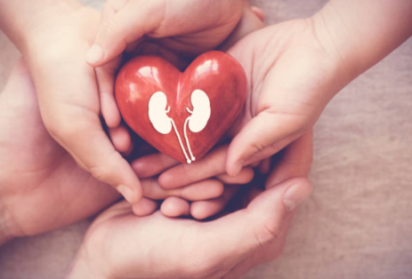
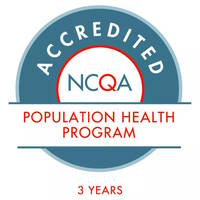
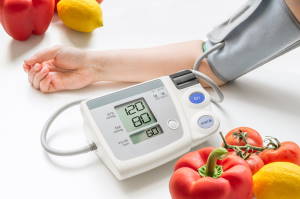 Know your blood pressure ->
Know your blood pressure ->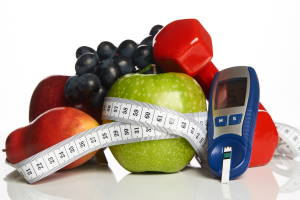 Get tested or treated for diabetes ->
Get tested or treated for diabetes -> If you smoke, quit ->
If you smoke, quit -> Choose healthier foods and cut down on added sugars ->
Choose healthier foods and cut down on added sugars -> Keep a healthy weight ->
Keep a healthy weight -> Exercise regularly ->
Exercise regularly ->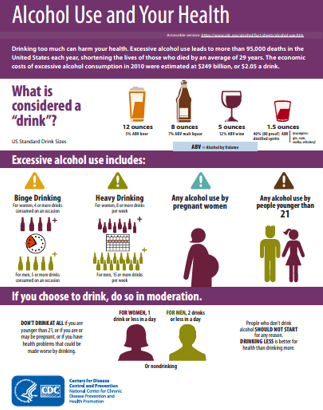 Do not drink too much alcohol ->
Do not drink too much alcohol -> Get Vaccinated ->
Get Vaccinated ->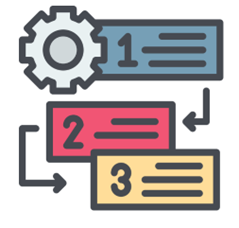 Follow a CKD action plan ->
Follow a CKD action plan ->